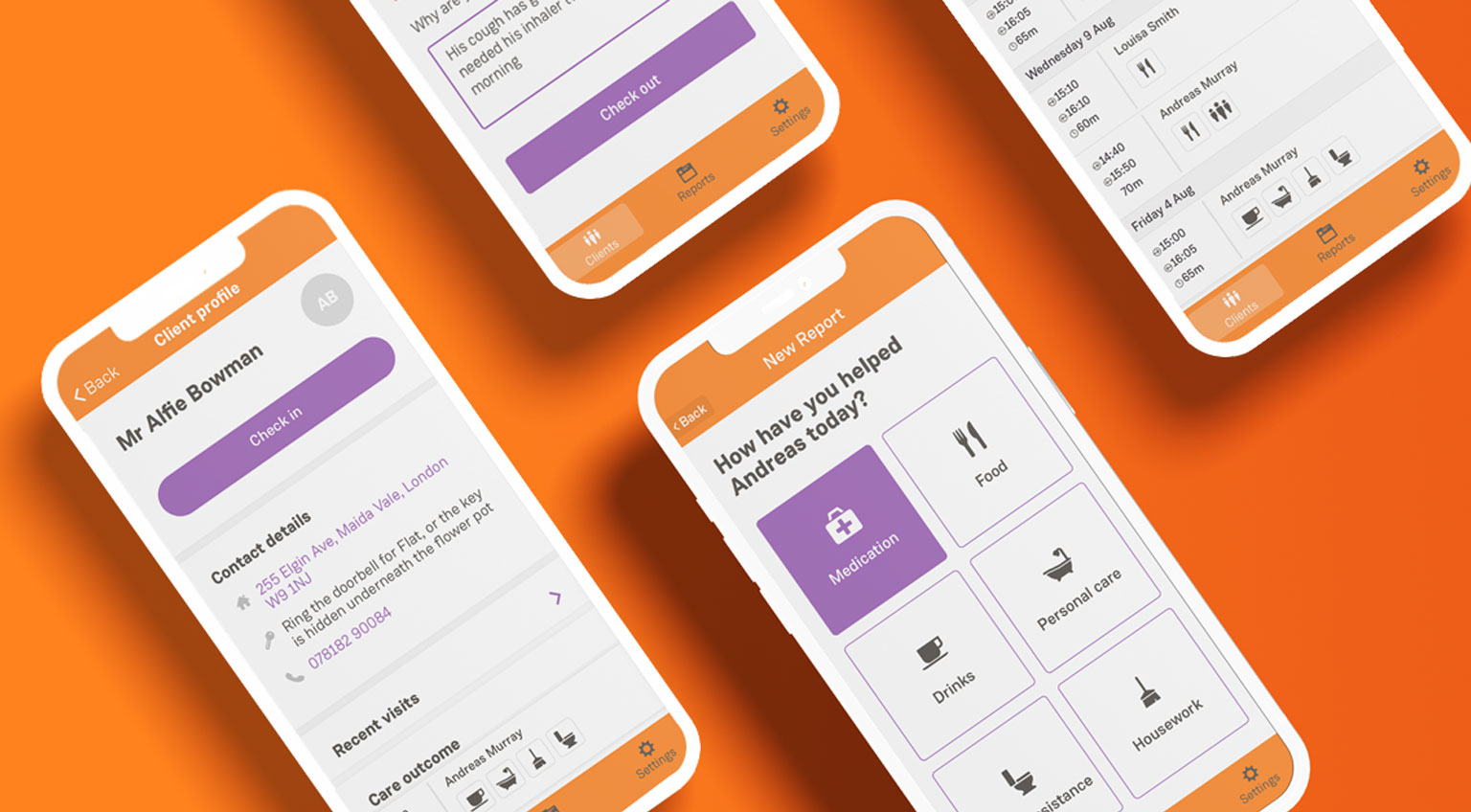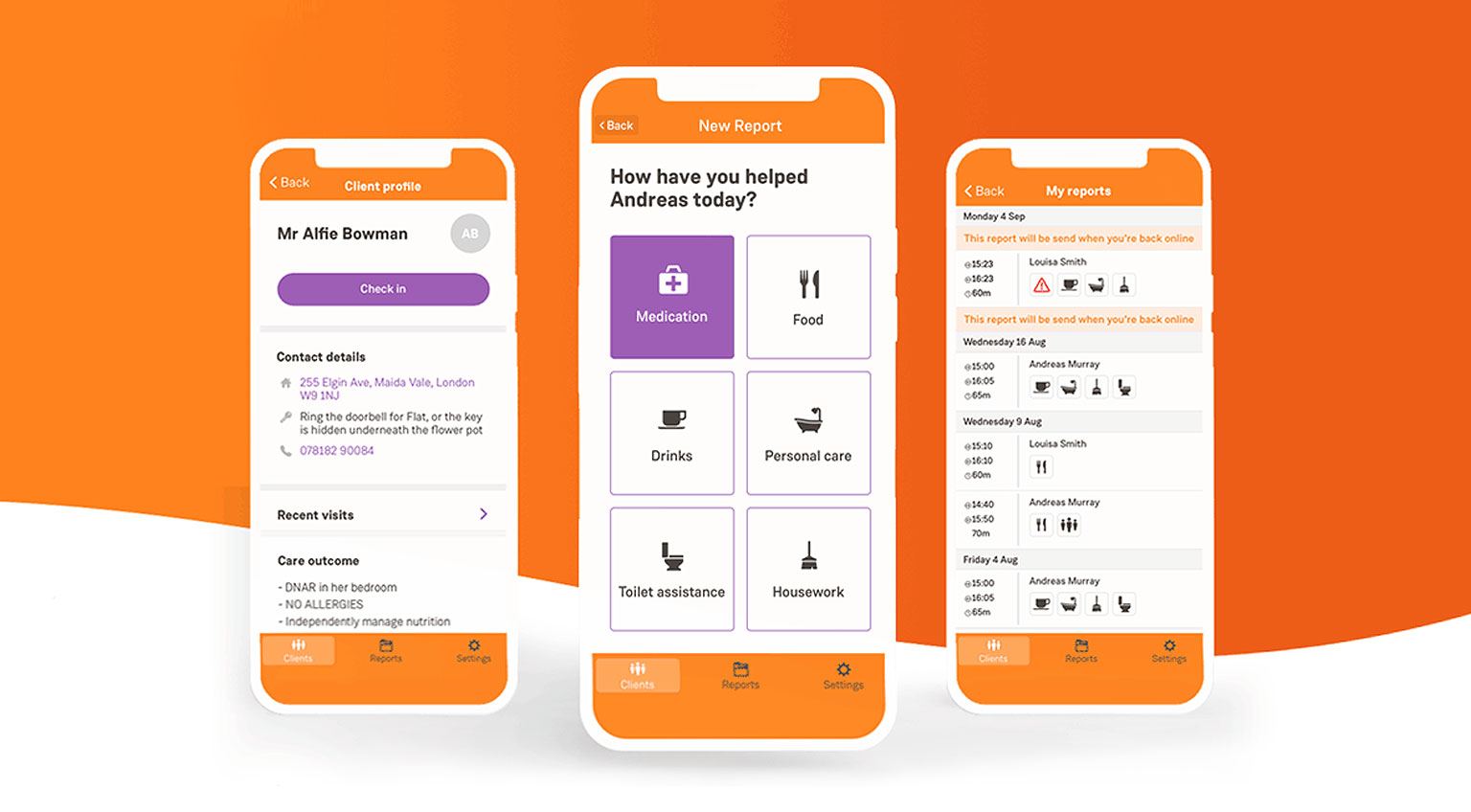Home Care Software: The Essential Guide

As care professionals, we all want to improve care standards for clients. From organising staff rosters to keeping care plans up to scratch, the admin often gets in the way.
Luckily, technology now allows forward-thinking care agencies to do away with many pieces of paperwork.
By using home care software, agencies not only have all the information they need for their next CQC inspection easily to hand, but can also free up more time to actually spend with clients.
So let’s take a look at the options, and dig a little deeper into what home care software is and how it can help.
What is home care software?
Home care software is a digital way of managing care delivery and monitoring care workers and their interaction with clients. These systems allow organisations to manage staff schedules, create care plans for clients, and perform powerful tasks like invoicing and payroll.
Agencies get to improve their services, manage their employees more efficiently, and improve client care.
And the best thing?
These features are all packaged in the same platform! The best home care software systems will save care providers so much time and money, they can reinvest that time and money back into delivering amazing care for their service users.
Domiciliary care software overview
Until now, different pieces of kit were needed for different parts of the care process, with competing platforms not playing well together, meaning higher prices and more headaches!
However, as technology has improved, so have the options for comprehensive care solutions, including:
1.) Comprehensive call monitoring tools, where employees can update their care notes via secure mobile phone apps.
2.) Simple staff rostering systems, capable of coordinating staff visits.
3.) Administration platforms, allowing agencies to oversee all aspects of their financial and staff management.
At OnCare, we’ve been on a mission to produce an easy-to-use, integrated platform that gives care providers a one-stop-shop for their care needs.
Hooray!
So let’s take a closer look at the nifty features you can expect from the leading domiciliary care software providers.

Common features of care technology
The exact features of domiciliary care software may vary from company to company, but here are some of the inbuilt capabilities you can expect:
Carer mobile app – There’s no longer any need for complicated, expensive equipment, as platforms can be accessed on any modern smartphone, with many systems working equally well on Android phones (common brands include Samsung or Sony) or iPhones.
Login from any location – password-protected, encrypted logins allow staff to sign into applications and update care notes at a client’s house or on the go, even when there’s no reception. Any changes made ‘offline’ (without connection to the network) can be saved an uploaded later once the care worker has a connection again.
Record keeping and incident reporting – Social care requires excellent documentation, from training reports, risk assessments and care plans. Alerts must also be recorded and messages from friends or family stored safely, not to mention the completion of incident related forms.
Voice-to-text dictation software – At OnCare we’ve provided voice recording technology, which not only improves the speed and accuracy of documentation but also makes it easier for support workers who are more comfortable speaking than writing. This is helpful for care workers for whom English isn’t their first language, as well as care workers who may not be as comfortable with technology.
Geolocated electronic call monitoring (ECM) – When care workers attend an appointment, systems record their exact location, in addition to arrival and departure times, making for a seamless service.
Family and friend updates – Keeping loved ones in the loop is essential in the modern care environment, with nominated individuals receiving real-time alerts of each visit.
Rota planning– Visual, drag and drop builders now provide office staff with intuitive, easy-to-amend schedules whenever the day takes an unexpected turn. Care staff can clearly see what they have planned on any given shift.
Travel information – Agencies can now accurately gauge travel time between visits, decide on individual mileage rates and apply specific exclusions for lunchtimes and breaks.
Invoicing and payroll – Invoicing private clients and the local authority is easy, while automatic payroll features calculate monthly staff costs.
Third party integrations – many systems include integrations with other digital platforms. For example, your care management software may integrate with your payroll provider or accounting tools. At OnCare we’ve ensured that all data can be exported via csv exports so that care providers always have the information they need, and can either create their own insights from the data – such as average visit duration, or frequency of missed visits – or can upload this data to be used in other systems.
eMARs – electronic medication records (eMARs) are systems that enable the office staff to input the correct medication per client into the system; so the care workers can then report on whether each type of medication was prompted, assisted, administered, refused, or other – with supporting notes. This allows the care provider to spot patterns in the medication management and enable course-correction where needed. For example, if a client regularly refuses their medication in the morning visits, it may be related to a difficulty in swallowing, so a liquid version might be better.
Data analysis – If you can’t measure it, you can’t manage it. Collecting important information on your care workers and clients helps improve organisational decision making and service delivery.
Staff management system – Digital platforms cater for a range of HR-related needs, including employee applications, staff training and appraisals, holidays, sickness and DBS expiries.